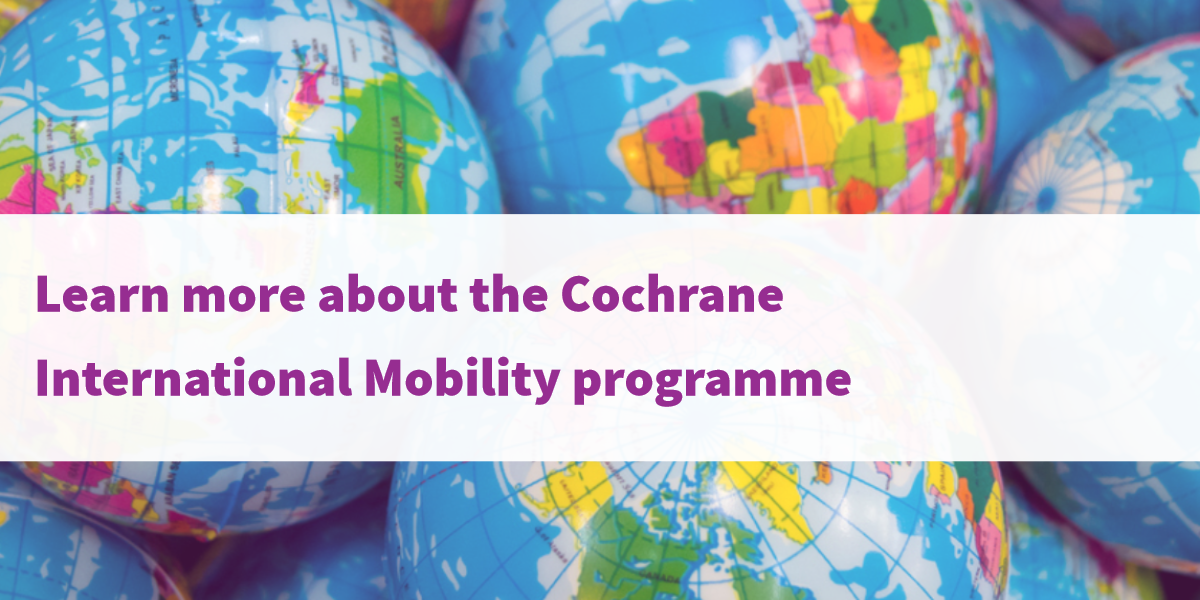
Cochrane is made up of 11,000 members and over 67,000 supporters come from more than 130 countries, worldwide. Our volunteers and contributors are researchers, health professionals, patients, carers, people passionate about improving health outcomes for everyone, everywhere.
Getting involved in Cochrane’s work means becoming part of a global community. The Cochrane International Mobility programme connects successful applicants with a placement in a host Cochrane Group, learning more about the production, use, and knowledge translation of Cochrane reviews. The prgramme offers opportunities for learning and training not only for participants but also for host staff.
In this series, we profile those that have participated in the Cochrane International Mobility Program and learn more about their experiences.

Name: Ana Beatriz Pizarro
Location: Bogotá, Colombia
Cochrane International Mobility location: Cochrane Sweden

How did you first learn about Cochrane?
I have been involved with Cochrane since 2016 because the first Cochrane Center in my country was at my university, and I was part of a research group with the director of Cochrane Colombia, that is where I learned everything about systematic reviews, research methodology and the Cochrane collaboration. Now, as a last-year nursing student, I'm the coordinator of the Colombian Cochrane Consumer Network, and I am also part of the coordinating committee of the Spanish version of the S4BE platform.
What was your experience with Cochrane International Mobility?
I work online from my home or eventually from the hospital. Sharing an international academic environment is the best way to broaden other ways of thinking, learning and doing stuff. I think it's great because it offers schedule flexibility, in every meeting I learn something new, the professors are always there for want I need and we also laugh a lot. We contacted in Cochrane's task marketplace; Task Exchange.
What are you doing now in relation to your Cochrane International Mobility experience?
I am currently in a kind of CIM with Matteo Buschettini and the team that also involves a professor from Texas, USA. We have been working on a systematic review of animal studies since January we are answering this research question: Does caffeine administration to neonatal pups affect neurodevelopment? I'm really excited because there's no convincing information about this and my goal is to keep working with EBM to help decision-makers choose the best available options of treatments or therapies for patients and their families to improve their quality of life. We meet weekly on zoom so we can check the updates of our team.
Do you have any words of advice to anyone conserving a Cochrane International Mobility experience?
Do not hesitate to do it. You will not regret it.

